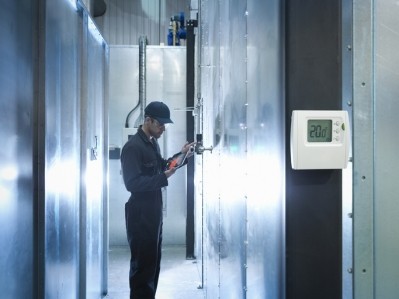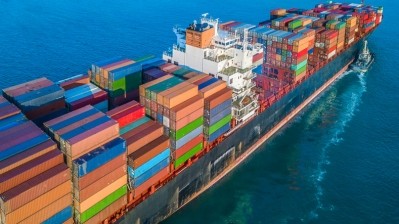Irish pig feed player invests to meet Brexit challenges head-on

We caught up with James Brett, managing director of that Group, to hear more.
“Brexit has been bad for Ireland. Britain is, not alone, a significant market for the Brett Group’s bacon and pork products, it is also Ireland’s main export market for agriculture produce.
Bretts’ feed mill in Callan, Co Kilkenny manufactures 140,000 tons of pig and ruminant feed annually from predominantly Irish cereals: wheat, barley and oats. It supplies its own pork production arm, and has a direct supply link with sister company, Sunglen Pig Farm, a fully integrated 1,500 sow farm located in Threecastles, Co Kilkenny. It also supplies pig, dairy and beef farmers located in the South East of Ireland.
“We have a long-standing deal with a major multiple and a smaller, specialized chain of retailers in the UK. In terms of pork and bacon, the tastes, as well as the packaging and distribution models are similar in Ireland and Britain.
“While we are continuing to grow our Oakpark Foods business – we have increased our sales in the UK in the past six months – Brexit is definitely feeding into our uncertainty about the future. We had planned to spend €10m on the construction of a new pork facility but that is now on hold. The site was purchased and is sitting idle.”
He said the Brett Group felt the impact of the June 2016 referendum vote the day after, with sterling slumping to a 31-year-low. “Fortunately, we had hedged well against that but we continue to take a hit on currency, as do others; and we have had to increase our prices.”
The UK government might struggle to keep a lid on food inflation, he stressed.
Britain cannot possibly exit the customs union or the single market by 2019, particularly given the fact it exports more goods to the EU than anywhere else, argued Brett. “In fact, the UK exports more to Ireland than it does to China, India and Brazil combined.”
“But right now, Britain doesn’t seem to know what it is doing [in terms of exit negotiations],” he added.
Energy efficiency
One way to offset market instability is to optimize production. Brett’s feed and grain unit has been investing heavily - €10m - to centralize and upgrade its mill, to replace its oil usage with gas and to expand mill capacity to meet post milk quota dairy feed demand.
“We installed a new boiler in our mill along with more energy efficient burners in our dryers.”
The division also modified variable speed drives on feed milling machinery to reduce energy consumption per hour and per ton of feed, and allocated capex to mill intake improvements, allowing speedier entry of raw materials, dust elimination and reduction in raw material loss.
In addition, the unit used part of that capital outlay to improve its grain storage capabilities, he explained.
Brett Group
Group Revenues: €100M
Feed Revenues: €50M
Feed Volume: 140,000 tons
Market area: Kilkenny, Tipperary, Waterford, Wexford, Carlow, Laois, Cork
Grain Intake: 70,000 tons
Group employment: 185
Oakpark Foods Markets: Ireland 70%, UK 25%, EU 5%
Sunglen Pig Farm: 1500 Sows
Sunglen pigs/yr: 40,000
However, the division wants to see whether the feed mill could leverage alternative electricity sources: “We are currently negotiating a contract with an Irish electricity supplier to carry out an energy audit on our feed mill.”
“The audit will evaluate whether the mill could be run off energy recovered fromanaerobic digestion on the pig farm, or from wind energy, for example.”
The assessment is part of a scheme whereby the energy supplier works collaboratively with businesses to identify potential savings and then shares the benefits such savings deliver.
“There are incentives now to reduce electricity usage in Ireland; suppliers want to even out peaks.”
Dairy dynamism
Bretts, he said, is also capitalizing on the current dynamism in the Irish dairy industry, with Ireland expected to be producing at least 50% more milk by 2020. “Ireland is pro dairying, and once the shackles of quota were removed [in 2015], a unique opportunity for expansion was created. The banks are strongly supporting the Irish dairy sector. We have seen rabid growth in the past two years, with farm and factory extensions. We are benefiting from that.”
Milk production increased by 26% in Ireland between 2013 and 2016, according to data from Teagasc, going from about 5.4bn liters to 6.8bn liters over that period. Cow numbers also jumped by 20% in that period - from 1.2m to about 1.34m dairy cows.
Moreover, at farm level, the level of debt is low compared to Ireland’s competitor countries in terms of milk production, said Brett. Irish dairy cows are, in the main, grass reared with their diets supplemented by concentrates, so the sector in Ireland is less exposed to cereal price volatility than other markets, he noted.
Feed prices
Right now, though, the world is awash with agri-commodities, he said. “The global [grain and oilseed] infrastructure is working reasonably well, and we have seen low prices in the past three years.”
He recognizes that pig feed is not as competitively priced in Ireland as it is in other European markets, though, and he said there are a number of factors behind that: “Ireland is an island on the periphery of Europe so shipping costs of raw materials into the country are higher. Distribution costs within Ireland are not cheap due to the limited roads network, etc. There is also a privileged credit cycle here – 90 days credit as opposed to 7-14 days elsewhere, and that is part of it.”














